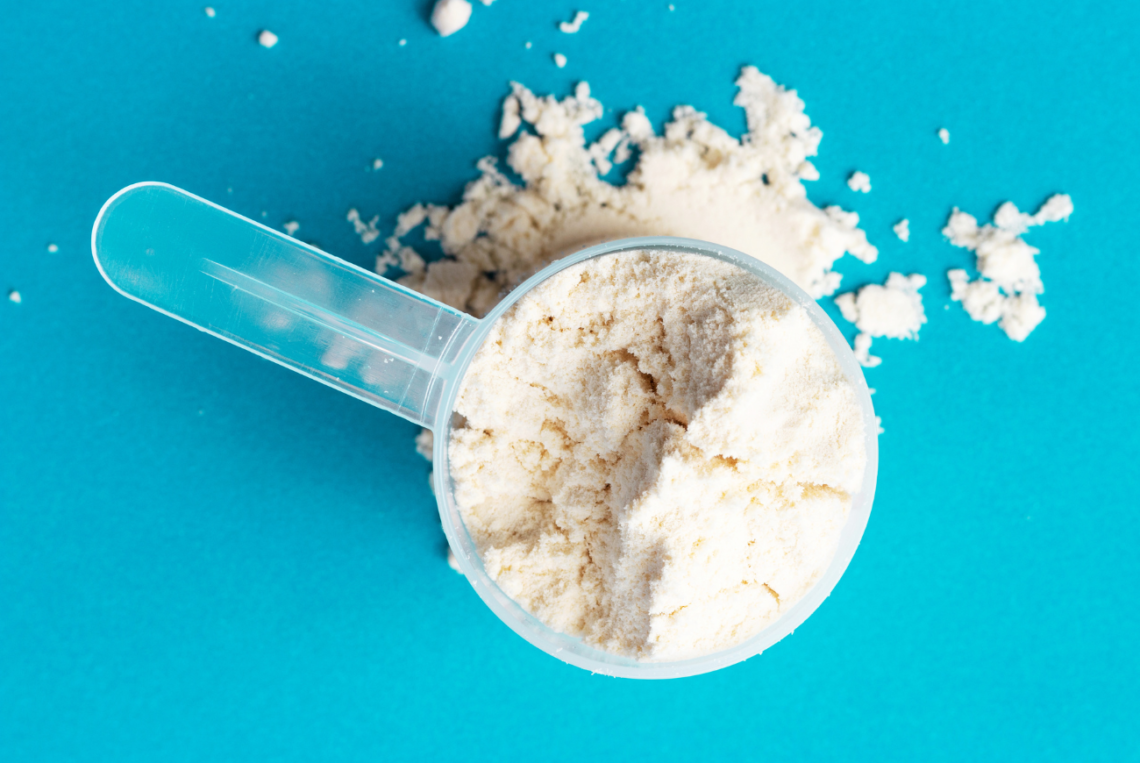
What’s the Deal with Protein Powders?
Protein is an essential macronutrient for everyone, but for people with diabetes, managing blood sugar levels while maintaining a healthy diet is especially important. Supplemental protein can be a convenient way to boost protein intake, particularly for those with active lifestyles or who struggle to meet their daily protein needs through food alone.
But what’s the deal with protein powders? Are they really necessary, and how do you choose the right one? Here’s a breakdown of everything you need to know.
What are Protein Powders?
Protein powders are concentrated forms of protein derived from various sources, such as:
- Whey (a byproduct of cheese production from milk)
- Casein (also from milk but digests more slowly)
- Plant-based sources (like peas, rice, hemp, and soy)
These powders are commonly used to supplement protein intake, especially for those who might not get enough through their regular diet. They can be easily mixed into shakes, smoothies, or recipes to boost your daily protein intake.
Types of Protein Powders
There are several types of protein powders, each with different benefits and nutritional profiles. Here’s a breakdown of the most popular options:
1. Whey Protein
Whey is one of the most popular and readily available protein powders. It’s a complete protein, meaning it contains all nine essential amino acids. It also digests quickly, making it a great option for post-workout recovery. Some whey protein powders contain added sugars, so it’s important to read the label. Also, since it’s derived from milk, it’s not suitable for those who are lactose intolerant or vegan.
2. Casein Protein
Casein is a slow-digesting protein, making it a great option before bed to support muscle repair overnight. It’s also derived from milk but releases amino acids more slowly than whey, which can be beneficial for blood sugar control. Like whey, casein is not suitable for those who are lactose intolerant or vegan. Some casein powders can also be higher in calories.
3. Plant-Based Protein
Plant-based proteins, like pea, hemp, or brown rice are an excellent option for those who are vegan, lactose intolerant, or simply prefer non-dairy options. They are generally lower in carbs, making them a good choice for people managing blood sugar. Some plant-based proteins may not be complete proteins on their own. However, many blends combine different sources (e.g., pea and rice protein) to provide all essential amino acids.
4. Soy Protein
Soy protein is another plant-based option that is also a complete protein. It’s rich in fiber and can help improve blood sugar levels when included in a balanced diet. Some people prefer to limit soy intake due to potential hormonal effects or food sensitivities.
Benefits of Protein Powders for Diabetes
Protein plays a key role in muscle repair, immune function, and overall health. For people with diabetes, protein can also help stabilize blood sugar levels. Since protein digests more slowly than carbohydrates, it helps prevent rapid spikes in blood glucose, making it a valuable part of a balanced diet.
Protein supplementation can also help with:
- Managing Hunger and Weight. Protein helps keep you fuller for longer, reducing the urge to snack on high-carb, high-sugar foods that can lead to blood sugar spikes. This can be particularly helpful if you’re working on weight management, which is often a goal for people with type 2 diabetes
- Muscle Health. If you’re engaging in regular exercise, especially strength training, getting enough protein is crucial for muscle repair and growth. Protein powders can provide an easy post-workout boost to help your muscles recover.
- Convenience. Sometimes it’s hard to get enough protein from whole foods, especially when you’re on the go. Protein powders offer a quick and convenient option, whether you’re looking to supplement your meals or need a fast snack.
Things to Watch Out for...
While protein powders can be a great addition to a diabetes-friendly diet, it’s important to choose the right product. Here’s what to look out for:
- Added Sugars. Many protein powders contain added sugars, which can quickly raise your blood sugar. Always choose products labeled “unsweetened” or “no added sugars” to avoid unexpected spikes.
- Carbohydrate Content. Some protein powders, particularly mass-gainer varieties, can be high in carbohydrates. If you’re watching your carb intake, opt for powders with fewer than 5–10 grams of carbohydrates per serving.
- Artificial Sweeteners. While artificial sweeteners like sucralose or aspartame may be better for blood sugar control than real sugar, they may cause digestive issues or have other unwanted side effects. Some people prefer more natural options like stevia or monk fruit extract.
- Calories. Protein powders can vary widely in calorie content. If weight management is a goal, pay attention to the calorie count and serving size.
Key Takeaways
Protein powders can be a useful supplement for people with diabetes, offering a convenient way to increase protein intake without significantly impacting blood sugar levels. Just be sure to choose options that are low in sugar, carbohydrates, and calories while fitting into your overall diet plan. As always, consult with your healthcare provider or a dietitian before making any significant changes to your diet.
- Patel V, Aggarwal K, Dhawan A, et al. Protein supplementation: the double-edged sword. Proceedings (Baylor University Medical Center). 2023;37(1):118. doi:10.1080/08998280.2023.2280417


You May Also Like

Is the “Diabetic Diet” a Thing of the Past?
August 20, 2024
Food Connects Us: A National Nutrition Month Celebration
March 4, 2025
